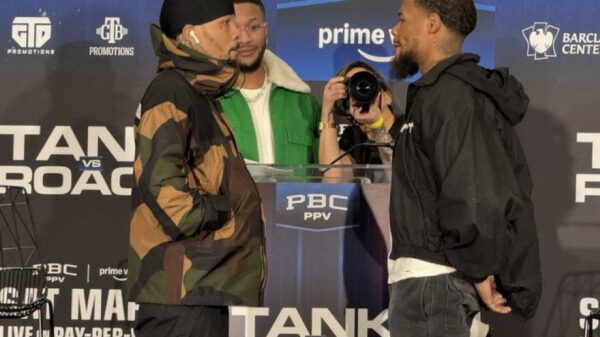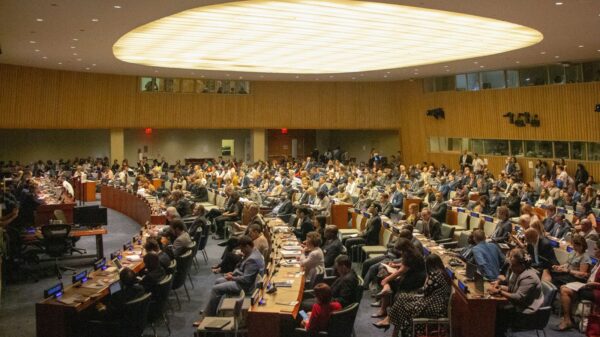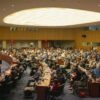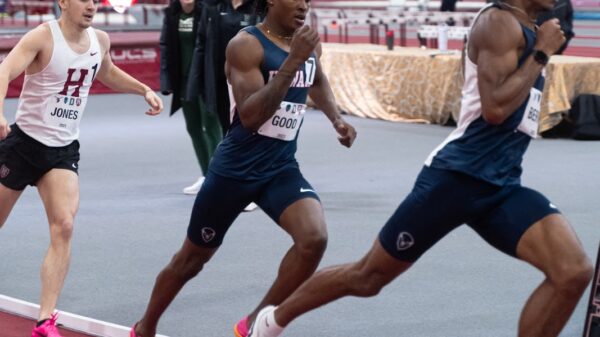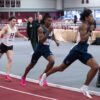Two student leaders of the historic Blackburn Takeover protests that occurred last fall said publicly for the first time that they had signed an agreement with the University that prohibited them from revealing details of the settlement.
University officials, however, said no such agreement prohibited the students from revealing the details, but that a “confidential” clause did exist with the protesters’ attorney.
Signed contracts, often known as a non-disclosure agreement or NDA, would prohibit protesters from revealing the details of a settlement. Such an agreement is highly unusual and would often raise more questions, according to collegiate protest experts.
After 34 days of occupying the Armour J. Blackburn University Center, student protestors reached an agreement with the University’s administration on Nov. 13, 2021, after reviewing what the students said was a confidential agreement. Students had been protesting for better living conditions in the dorms, the reinstatement of student positions on the Board of Trustees and a lack of transparency between the University and the students.
Erica England, one of the protest leaders and a then-political science major, said that Donald Temple, the attorney who represented the protesters, met with the demonstrators in the Blackburn auditorium and outlined the details of the agreement. “There was not a lot of transparency with the document,” England said. “We were told verbally what was in [it].”
Nikkya Taliaferro, a sophomore political science major and student protestor, said she read the agreement “quickly” on a cell phone in Blackburn’s lobby. She said students passed the phone around and were told to type in their names if they agreed with the terms.
Frank Tramble, Howard’s vice president and chief communications officer, said the document passed around was not an NDA but a “memorandum of understanding,” also known as an MOU. He said protesters did not directly sign the agreement.
“The students’ legal representative was the sole signatory on their behalf, and, like most MOUs, it included a confidentiality provision,” he said. “The students’ legal representative provided a list of students who presumably self-identified as participating in the unapproved occupation to take advantage of the settlement terms. While we will not discuss the terms of the agreement, academic issues were left to the discretion of the faculty, taking into consideration each student’s situation. We have no knowledge of any students signing an NDA and insisted on not engaging with the students until they had legal representation at the table.”
Jerusha Conner, a student protest expert and director of graduate education programs at Villanova University said it was uncommon for protesters and university officials to enter into an agreement where the terms are not public.
“It’s highly unusual for student protests or occupations to end with a non-disclosure agreement, as students are often trying to promote greater transparency and accountability in institutional decision making,” Conner said.
Todd Vachon, a labor negotiation expert and assistant professor of Labor Studies at Rutgers University, said the private agreements could raise more questions than they answer.
Such agreements, Vachon said, “have become increasingly popular among employers and wealthy individuals seeking to resolve sensitive or controversial issues outside of public view, sometimes making concessions that they would not want to make on record or that could set precedent,” he said, “I have not heard of them being used as part of a resolution to a social protest before, but that doesn’t mean it has not happened.”
Temple said the settlement agreement was not an NDA. He declined to allow The Hilltop to review the document, calling it “confidential.” Temple said he is the only person, besides the administration, who has a copy.
“A settlement agreement is any settlement agreement, dispute between parties,” the attorney said. “An NDA is a nondisclosure agreement. You won’t disclose something in particular that doesn’t have to be a settlement agreement.”
Temple, also a Howard alumnus, pointed out previous protests such as the 1989 and 2018 protests, where he also served as the pro bono attorney, had written settlement agreements as well.
At the time of the Blackburn Takeover, student protesters demanded a meeting with Howard President Wayne A.I. Frederick and other administrators. It wasn’t until the Nov. 13 meeting where the settlement was reached and when protest leaders were able to negotiate with the administration, England said.
“I think the reason that we reached an agreement was because after all that time the administration finally agreed to sit down with us and actually really talk out how we were gonna end it. Because all the meetings we had with the administration before that were pointless. Those conversations were very much condescending, very much victim blaming,” she said.
Aniyah Vines, a former student protest leader and now Howard alumna, said protesters believed they were putting their mental health in jeopardy for a protest that had come to a standstill.
England and Vines said student protesters had urged for transparency, but that the decision to keep the agreement confidential was made by the University. The student leaders said they had no choice in their effort to reach a settlement.
Imani Bryant, a Howard alumnus and graduate student, recalled having a written settlement agreement following the 2018 protest. “We didn’t have an NDA. While we were negotiating with the Board of Trustees we were relaying information in real time. There was no legal obligation to keep quiet.”
Taylor Smith, a protester during the Blackburn Takeover, said he was unaware of the details in the agreement because he was not one of the leaders.
“There were people who were involved who did not get to see what the actual agreement was. The terms that some of the people signed, which is kind of concerning because what did you sign into? Some people were more or less upset with the protesters,” Smith said. “I’m glad that they found a middle ground and were able to move past the problems they were having, but it would have been better if it was more transparent.”
Protesters said signing the agreement was not for personal gain but for the betterment of the entire student body. “I know that I didn’t compromise anything for myself, and where I stood. I think, again, it was not a compromise. It was ‘let’s be strategic,’” Vines added.
Some protesters missed classes and subsequently failed their classes, while others abandoned their jobs off campus. For the demonstrators, the agreement was a way to leave Blackburn without sacrificing their academics.
“One of the biggest reasons why [we] agreed to leave Blackburn at that time was because it was 34 days in and students were literally failing,” Vines said. “So I think that mentally people were breaking inside.”
Copy edited by N’dia Webb


